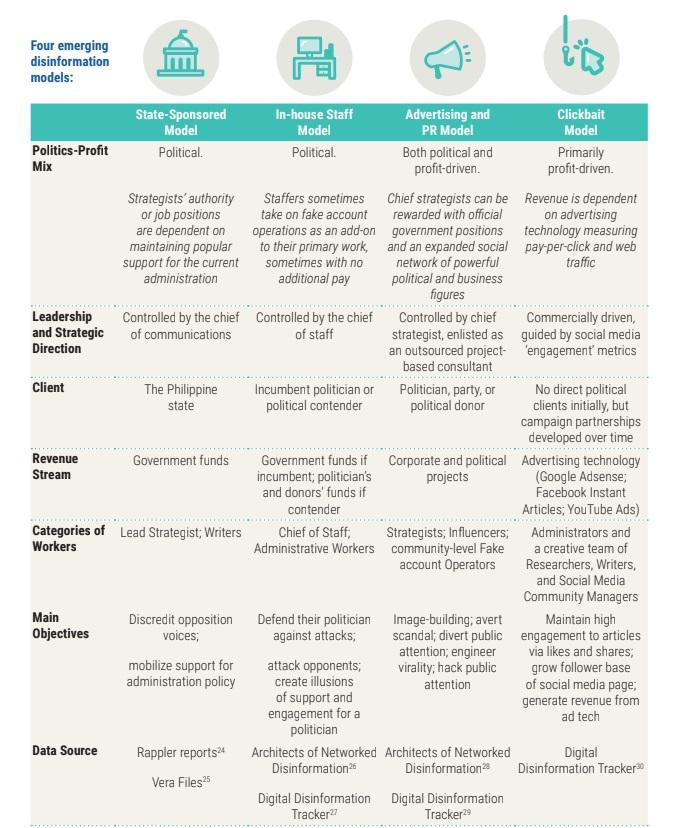4 kinds of fake news in PHL, including state-sponsored trolling —NATO Stratcom study
A study published by the North Atlantic Treaty Organization (NATO) detailed four models of disinformation in the Philippines, including a state-sponsored model that leads to the "silencing, self-censorship, and chilling effects among dissenters, and the public."
The study, published by NATO Strategic Communications Center of Excellence, found the following models of "fake news" factories:
- the in-house staff model
- the advertising and public relations model
- the clickbait model
- the state-sponsored model
The study is authored by Jonathan Corpus Ong, Associate Professor of Global Digital Media in the University of Massachusetts Amherst, and Jason Cabañes, Associate Professor of Communication in De La Salle University—Manila.

According to the study, the state-sponsored propaganda model assumes “intentionality from the president himself to intimidate and harass his critics."
"This involves him deploying the fake news label in tirades against mainstream media. His outbursts are usually a response to their unsavory reports of the government and his policies, most notably the war on drugs," read the study, which cited reporting from Rappler and Vera Files as sources of data for the state-sponsored model.
"His message is taken forward by his so-called ‘keyboard army,’ consisting of hyper-partisan political pundits, social media influencers and fans,” it added.
Of the four models, the "most politically agnostic and commercially driven model" is the clickbait model,.
"[C]lickbait websites are so profitable from ad tech alone that political pundits and influencers are happy to cash in from sharing their emotionally appealing but factually misleading stories,” they said.
Meanwhile, the study found that "confident veterans of political campaigns, chiefs of staff" usually lead the in-house staff model while politicians or private donors outsource trolling jobs to disinformation consultants in the public relations model.
The study further noted that the perpetrators of fake news in the country are entrepreneurs who seek political and corporate clients.
“The typical troll in the Philippines is not the sad nerdy guy living in his parents’ basement, but the savvy entrepreneur hyping their digital skills and seeking both political and corporate clients,” Ong said.
“This kind of troll does not need to hide in the dark web or a black market; this troll is employed in the politician's in-house team, a PR firm or a digital marketing company,” he added.
Ong and Cabañes suggested concerned officials to conduct more research about the threat of the trolls, push for legal reforms including campaign transparency, increase transparency in the operations of social media platforms, and enact industry standards and mechanisms in the digital workplace that reward professional and ethical practice to counter fake news. —Joahna Lei Casilao/JST, GMA News



